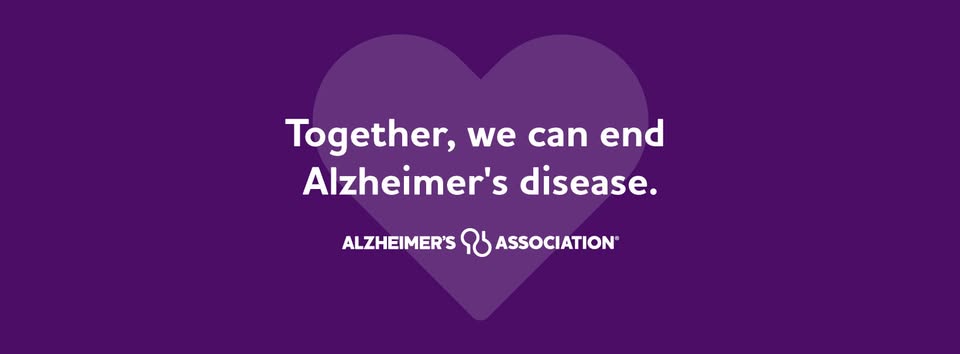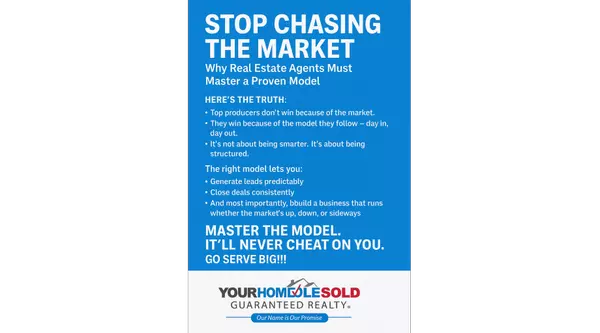Alzheimer’s Association and Alzheimer’s Impact Movement Statement on Medicaid: A Call to Protect Vulnerable Lives
In this Alzheimer’s Association and Alzheimer’s Impact Movement statement on Medicaid, both organizations are sounding the alarm—and for good reason. As conversations heat up around Medicaid reform, they’re urging Congress to ensure that any changes protect access to critical care for the nearly seven million Americans living with Alzheimer’s disease and the more than 11 million caregivers who support them.
If you have ever cared for someone with dementia—or are in the thick of it right now—you understand how essential these services are. This isn't just about budget lines or policy points. It's about people. Here at Your Home Sold Guaranteed Realty we support this great organization and see below how you can too.
Why Medicaid Is Essential for Alzheimer’s Families
A Healthcare Lifeline for the Most Vulnerable
Alzheimer’s disease isn’t just about memory loss—it’s a progressive, debilitating condition that affects everything from mobility to communication. Over time, most people with dementia require around-the-clock care, which becomes increasingly expensive.
Medicaid is the only federal program that covers the long-term care many people with Alzheimer’s need, especially during the later stages. Private insurance doesn’t typically cover custodial care, and Medicare only pays for short-term skilled nursing.
Beyond Nursing Homes: Supporting Independent Living
Medicaid also funds home and community-based services (HCBS)—like in-home aides, adult day care, and respite care—which are crucial for helping individuals with dementia remain in their homes longer. These programs not only improve quality of life, but also reduce the emotional and financial burden on caregivers.
The Urgent Message from the Alzheimer’s Association and AIM
The recent Alzheimer’s Association and Alzheimer’s Impact Movement statement on Medicaid was clear and focused: as lawmakers consider changes to Medicaid, they must protect dementia-specific services and preserve access to long-term support.
Here’s what they’re advocating for:
- Bipartisan commitment to safeguard Medicaid access
- A sustainable, person-centered long-term care system
- Continued funding for home and community-based care
- Policy protections for caregivers and people with dementia-related disabilities
These changes are not just policy adjustments—they’re decisions that could drastically alter the future of elder care programs across the U.S.
Understanding Person-Centered Care in Medicaid Policy
It’s About the Person, Not Just the Disease
When the Alzheimer’s Association and AIM talk about person-centered care, they’re talking about care that adapts to the individual’s needs, preferences, and goals. It means recognizing that a person with Alzheimer’s is still a whole person with a history, a personality, and emotional needs.
Why It Should Guide Medicaid Reform
When policymakers think about long-term care funding, they can’t just look at spreadsheets. Medicaid for Alzheimer’s patients has to provide the right services at the right time—in both nursing facilities and community-based programs. A person-centered approach leads to better health outcomes, lower hospitalization rates, and less caregiver burnout.
Supporting Caregivers: The Backbone of Dementia Care
Caregivers often shoulder an overwhelming load—juggling jobs, children, and their own health while also managing a loved one’s complex medical and emotional needs. Without the right support, burnout is inevitable.
Medicaid’s role in providing respite services, caregiver training, and in-home assistance is essential for keeping families afloat.
The Bigger Picture: Alzheimer’s, Policy, and Public Health
This isn’t just a personal issue—it’s a national public health challenge. As the population ages, Alzheimer’s cases are projected to skyrocket in the coming decades. If Medicaid funding is cut or restricted, millions of Americans could lose access to care that allows them to live with dignity.
The Alzheimer’s Association and Alzheimer’s Impact Movement statement on Medicaid isn’t just a policy memo—it’s a wake-up call. It’s a reminder that our healthcare infrastructure must evolve to meet the needs of aging Americans with complex conditions.
How You Can Help
1. Stay Informed
Visit alz.org or alzimpact.org to stay up-to-date on Alzheimer’s policy initiatives and Medicaid discussions.
2. Speak Out
Contact your elected officials. Share your story. Let them know that protecting dementia-related Medicaid services is not optional—it’s a moral and practical necessity.
3. Support the Cause
Donate, volunteer, or participate in advocacy events with your local Alzheimer’s Association chapter. Every voice counts in shaping the future of long-term dementia care.
At Your Home Sold Guaranteed Realty Advisors, we are on a mission to raise money for The Alzheimer’s Association. Who do you know considering buying or selling a home that you can refer to our Real Estate sales Team? Not only will they benefit from our award-winning service, but a very worthy cause will benefit as well. To refer someone, give us a call at 929-203-9101
About the Alzheimer’s Association
The Alzheimer’s Association is the world’s leading voluntary health organization focused on Alzheimer’s care, support, and research. Their mission is to end Alzheimer’s and all other dementias by accelerating research, promoting early detection, and supporting quality care systems.
📞 Helpline (24/7): 800.272.3900
🌐 Learn more: alz.org
About the Alzheimer’s Impact Movement (AIM)
AIM is the policy and advocacy arm of the Alzheimer’s Association. Their goal is to push forward federal policies that increase research investment, improve care standards, and protect critical Medicaid programs for those living with dementia.
🌐 Get involved: alzimpact.org
The Alzheimer’s Association and Alzheimer’s Impact Movement statement on Medicaid makes one thing abundantly clear: Medicaid is a lifeline, not a luxury, for millions of Americans dealing with Alzheimer’s disease. As the population ages and care demands rise, lawmakers must commit to policies that protect and strengthen this vital program.
Because when we protect Medicaid, we’re not just funding a program—we’re protecting vulnerable lives, easing caregiver burdens, and preserving the dignity of those we love most.
You can help us help the community! Refer someone today call or text 929-203-9101. Blake Team Referrals
Frequently Asked Questions (FAQs)
Alzheimer’s Association & Alzheimer’s Impact Movement Statement on Medicaid
Prepared for Your Home Sold Guaranteed Realty Advisors LLC
1. Why is Medicaid so important for families affected by Alzheimer’s disease?
Medicaid is the only federal program that covers long-term custodial care for individuals living with Alzheimer’s. Since Alzheimer’s is a progressive condition that often requires 24/7 supervision, many families rely on Medicaid to afford nursing home care, in-home aides, adult day programs, and other essential long-term services that private insurance and Medicare do not cover.
2. What types of services does Medicaid provide for people with Alzheimer’s?
Medicaid supports two major categories of care:
-
Long-term nursing home care for advanced stages of dementia
-
Home and Community-Based Services (HCBS) such as:
-
In-home aides
-
Adult day care
-
Respite care
-
Personal care support
-
Community living programs
-
These services often allow individuals to stay at home longer while reducing caregiver stress.
3. What is the Alzheimer’s Association and Alzheimer’s Impact Movement urging Congress to do?
Both organizations are urging lawmakers to protect Medicaid funding and ensure dementia-related services remain fully accessible. Their priorities include:
-
Safeguarding Medicaid for the nearly 7 million people living with Alzheimer’s
-
Preserving access to home and community-based supports
-
Strengthening policies that protect unpaid caregivers
-
Creating a sustainable, person-centered care system nationwide
4. What does “person-centered care” mean in the context of Medicaid?
Person-centered care means designing care around the individual—not the diagnosis. This includes:
-
Respecting personal preferences and routines
-
Providing the right support at the right time
-
Prioritizing dignity, independence, and emotional well-being
A person-centered model leads to fewer hospitalizations, lower costs, and better outcomes for both patients and caregivers.
5. How does Medicaid support caregivers of people with Alzheimer’s?
Medicaid plays a vital role in preventing caregiver burnout by offering services such as:
-
Respite care
-
In-home support staff
-
Adult day programs
-
Caregiver education and training
-
Assistance with activities of daily living (ADLs)
These services help caregivers maintain employment, manage their own health, and safely support their loved ones at home.
6. How does Alzheimer’s disease create a public health challenge?
As Americans live longer, Alzheimer’s diagnoses are projected to increase sharply. Without strong Medicaid support:
-
Millions could lose access to critical dementia care
-
Hospitals and nursing homes could face overwhelming demand
-
Family caregivers could experience extreme burnout
-
Communities may face rising economic and healthcare strain
The Alzheimer’s Association and AIM emphasize that protecting Medicaid is a national public health priority.
7. How can I get involved in supporting Alzheimer’s advocacy and policy work?
You can take meaningful action through:
-
Staying informed at alz.org and alzimpact.org
-
Contacting your legislators to advocate for Medicaid protections
-
Donating or volunteering with your local Alzheimer’s Association chapter
-
Participating in local events like the Walk to End Alzheimer’s
Every voice helps influence policy that affects millions of families.
8. How is Your Home Sold Guaranteed Realty Advisors LLC involved in supporting the Alzheimer’s Association?
Our team is deeply committed to raising funds for the Alzheimer’s Association through referrals, community initiatives, and public awareness. Every referral helps us continue supporting this mission.
If you know someone thinking of buying or selling a home, you can support the cause today by calling or texting:
📞 929-203-9101
Blake Team Referrals
Your referral helps a family facing Alzheimer’s and receives our award-winning Home Sale Certainty System™.
9. Why does Your Home Sold Guaranteed Realty Advisors support Alzheimer’s causes?
Because Alzheimer’s affects families right here in Staten Island and across the country. We believe our business should be a force for good—providing certainty in real estate and supporting certainty in care for vulnerable families. Our mission-driven model ties every home sold to meaningful community impact.
10. Where can I find more information or support if someone in my family is affected by Alzheimer’s?
You can access 24/7 help and resources through:
-
Alzheimer’s Association Helpline: 800-272-3900
-
Website: alz.org
-
Advocacy and policy updates: alzimpact.org
These organizations are leading the fight for care, support, and research funding nationwide.

Categories
- All Blogs (440)
- Agent Recruiting (81)
- Buyer w/House to sell (59)
- For Home Buyers (98)
- For Home Sellers (104)
- How to Blogs (3)
- Lifestyle (23)
- Miscellaneous (1)
- Our Worthy Cause (65)
- Probate (50)
- Staten Island Neighborhoods (20)
- Staten Island Real Estate Market Update (6)
- TW EMAILS (6)
- Weekend Events (23)
Recent Posts










GET MORE INFORMATION

Broker | License ID: 10491210994
